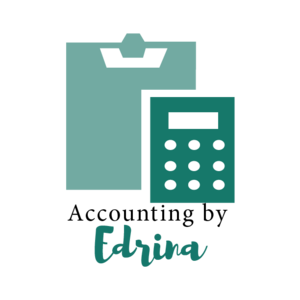Simplifying Your Life: Tips for Keeping Track of Expenses - Part 1
In our fast-paced society, it's easy for our finances to spiral out of control. From groceries to regular monthly bills to entertainment, expenses just keep popping up everywhere. That’s why it is crucial to keep track of where our money is going. With a few key strategies, you can take control of your finances and keep peace of mind.
Here are my top tips and some pretty easy ways to keep track of your expenses:
1. Create a Budget
Start by writing down your monthly income and fixed expenses such as rent, utilities, and any loan payments you may have. If you prefer entering your expenses in a google sheet, I have that available for you here. If you’re a small business owner make sure to include any additional expenses like subscriptions and software, office supplies, payments to contractors, and the list could truly go on.
When you create your budget you are allocating certain dollar amounts for variable expenses like groceries, dining out, and entertainment. Stick to this budget as much as you can in order to avoid overspending. I like to check-in on my budget on a weekly basis to ensure everything is running smoothly.
2. Use Expense Tracking Apps
You can absolutely embrace technology by utilizing expense tracking apps like Mint and YNAB (You Need a Budget). What happens is these apps will sync your bank accounts, credit cards, and even bills in order to categorize your expenses automatically. This way would be easier for you to see if you stick within your budget. You can also set budget limits for each category, and receive notifications when you're close to exceeding them. Sounds like a win/win to me!
3. Keep Receipts and Use Expense Worksheets
Another idea for those who would rather use pen and paper is to hold onto the receipts for all purchases. At the end of each day, you would record each of these expenses on a dedicated expense worksheet. This manual tracking method will provide you a very tangible overview of your spending habits. Sometimes this allows you to easily identify areas where you can cut back.
4. Practice Mindful Spending
Before making a purchase, ask yourself if it is a necessity or a discretionary expense. One way I like to do this is to give myself a monthly “Amazon” budget. I will usually add items to my cart throughout the month, but I will only checkout once each month so I know I’m staying within my monthly Amazon budget. Mindful spending will help you avoid impulse purchases while ensuring your money is going toward things that truly matter to you.
By implementing any of these strategies into your daily routine, this will simplify your life and help you gain control over your finances. Stay consistent with this routine! With time and effort, you'll develop healthy spending habits to stay within your budget and help you reach your financial goals.
